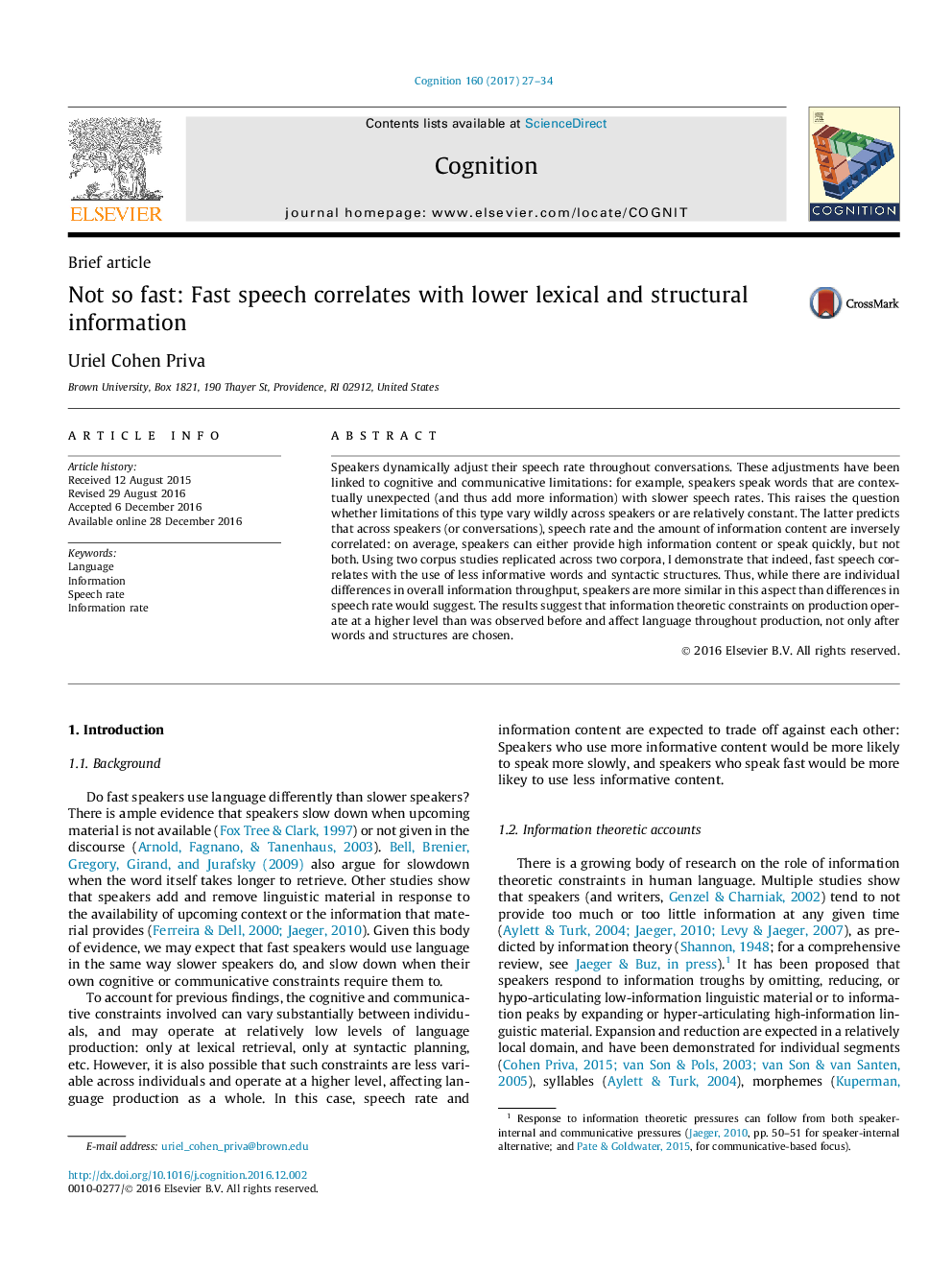| Article ID | Journal | Published Year | Pages | File Type |
|---|---|---|---|---|
| 5041631 | Cognition | 2017 | 8 Pages |
â¢Overall fast speech rate correlates with lower average information content.â¢Fast speakers use more frequent words and less passive voice than slower speakers.â¢Shows more global relationship between speech rate and linguistic information.â¢Evidence for information channel restriction on the choice of words and structures.
Speakers dynamically adjust their speech rate throughout conversations. These adjustments have been linked to cognitive and communicative limitations: for example, speakers speak words that are contextually unexpected (and thus add more information) with slower speech rates. This raises the question whether limitations of this type vary wildly across speakers or are relatively constant. The latter predicts that across speakers (or conversations), speech rate and the amount of information content are inversely correlated: on average, speakers can either provide high information content or speak quickly, but not both. Using two corpus studies replicated across two corpora, I demonstrate that indeed, fast speech correlates with the use of less informative words and syntactic structures. Thus, while there are individual differences in overall information throughput, speakers are more similar in this aspect than differences in speech rate would suggest. The results suggest that information theoretic constraints on production operate at a higher level than was observed before and affect language throughout production, not only after words and structures are chosen.
